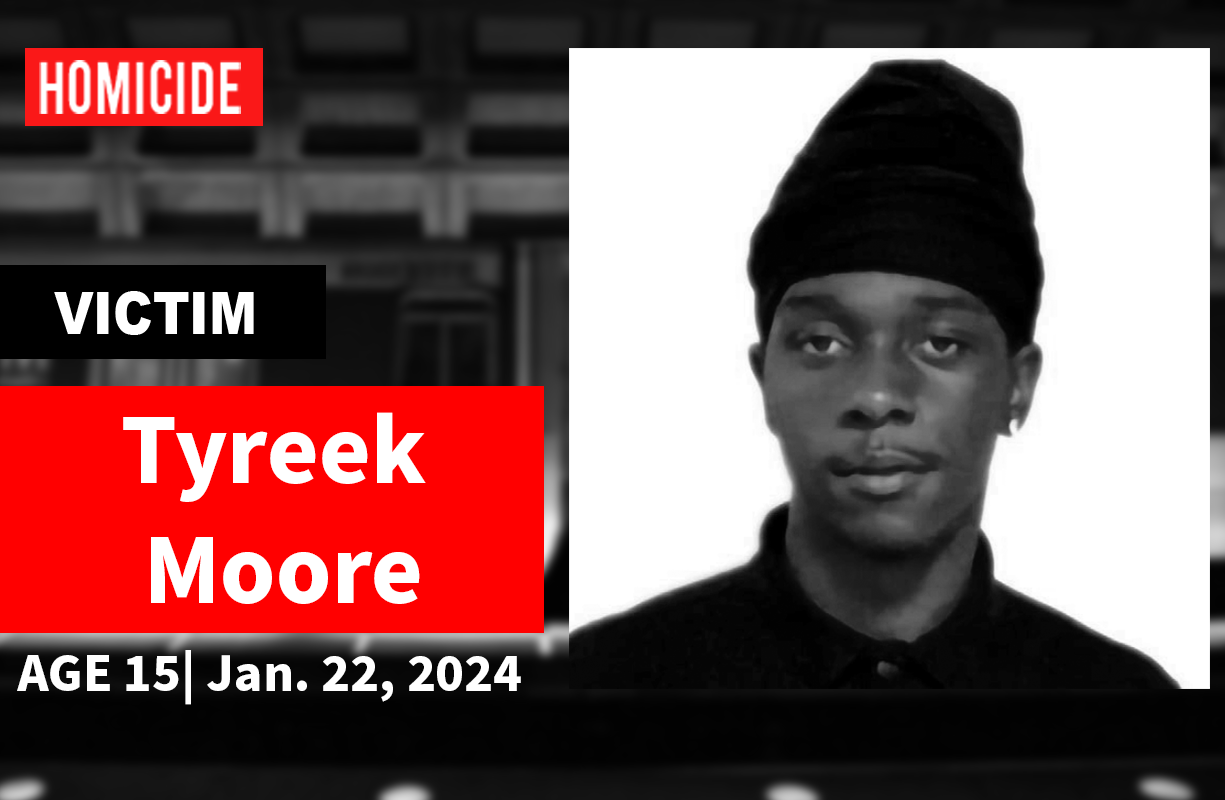
Thank you for reading D.C. Witness. Help us continue our mission into 2024.
Donate NowBy
Audrey Staudacher
- April 27, 2024
Daily Stories
|
Homicides
|
Shooting
|
Suspects
|
Victims
|
Parties argued for probable cause in a fatal shooting that killed one teenager and seriously injured another in an April 25 hearing.
Tyree Bratcher, 17, is charged with second-degree murder while armed for his alleged involvement in the death of 18-year-old Tyreek Moore on Jan. 22 on the 4600 block of Minnesota Avenue, NE. One other individual received non-life threatening injuries.
Bratcher is tried as an adult under Title 16, which allows the US Attorney’s Office to prosecute juveniles as adults for serious crimes, such as murder and severe shootings.
According to court documents, Moore and several other individuals were on a “joyride” through their neighborhood when they were pursued by a vehicle allegedly driven by Bratcher. Video surveillance showed an unidentified individual hanging out the rear passenger window of Bratcher’s vehicle with their arm pointed at Moore’s vehicle. After both vehicles drive out of sight, three shots are captured by surveillance audio.
The lead detective on the case from the Metropolitan Police Department (MPD) testified that video surveillance also showed an individual identified as Bratcher allegedly speaking to the driver of a black BMW after leaving school. A few minutes later, an individual believed to be the shooter exits the BMW and enters Bratcher’s car moments before the shooting.
The shooter in this case has yet to be identified by MPD.
Bratcher’s defense attorney, Sylvia Smith, argued that there was not enough evidence to prove Bratcher had any idea a shooting was going to occur. Specifically, the detective was not able to provide any evidence of Bratcher and Moore interacting before the shooting or provide a definitive motive for Bratcher’s involvement in the incident.
According to Smith, there was a “lack of motive, lack of reason to carry out the shooting” for Bratcher’s involvement based on the evidence.
Smith also claimed there had been a “failure to investigate” by the MPD because several witnesses were identified by MPD but were never interviewed.
In Bratcher’s interview with the police, he admitted he did know the shooter was armed, but maintained he had no idea a shooting was going to occur. Smith also pointed out that, at the time of the shooting, Bratcher’s view of the firearm was obscured as the shooter leaned out of the window.
“Bratcher is not the shooter,” concluded Smith. “He did not know the shooter was going to shoot.”
The prosecution refuted Smith’s claims, pointing out Bratcher’s car was identified on video surveillance, Bratcher admitted to being the driver in the vehicle, and he knew the shooter was armed.
According to the prosecutor, it was Bratcher’s decision to continue pursuing Moore’s vehicle knowing the shooter possessed a firearm, which made him culpable for the shooting.
“To suggest he didn’t know that goes against the evidence and facts of the case,” said the prosecutor.
Due to time constraints, parties will reconvene on April 26.“There are some additional matters to address,” said DC Superior Court Judge Maribeth Raffinan.
Follow this case